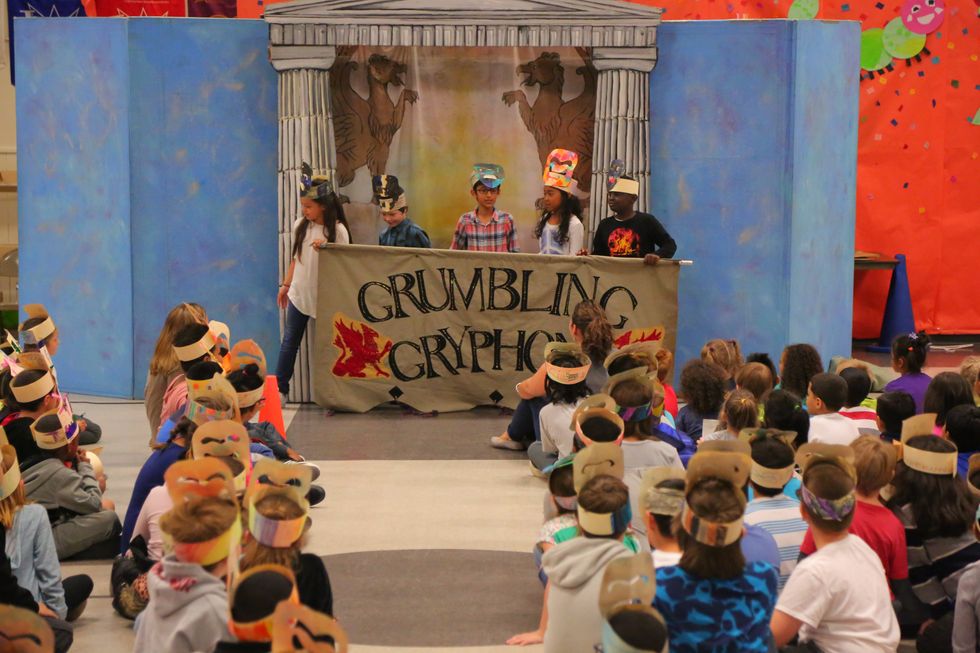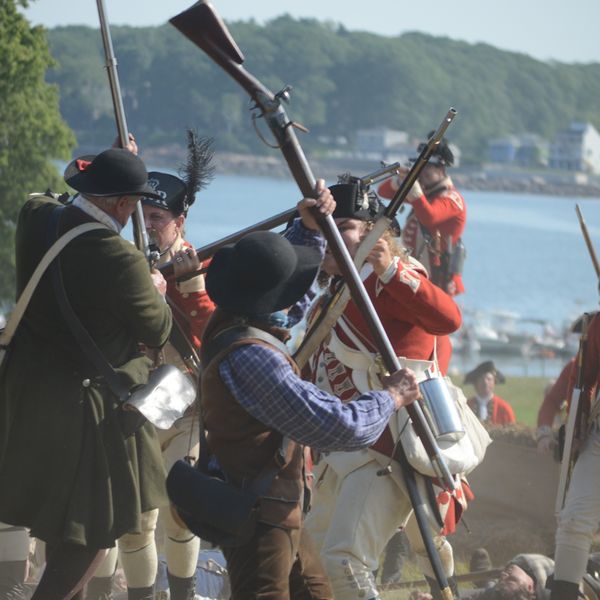Latest News
Gilbert Kenneth Schoonmaker
Jul 28, 2025
WINSTED — Gilbert Kenneth Schoonmaker, of Monroe, Connecticut, passed away peacefully on July 24, 2025, at the age of 77. Born on Jan. 18, 1948, in Winsted, Connecticut to Gilbert and Alta (Bierce) Schoonmaker, Gil spent four decades enjoying life on Highland Lake before settling in Monroe.
He is lovingly survived by his wife of 56 years, Sally (Gustafson) Schoonmaker, and his two daughters, Lynn Sindland and her husband Lee of Lead Hill, Arkansas, and Deb Pikiell and her husband Tim of Bristol, Connecticut. Gil was a proud grandfather to Ozzie, Tommy, Betsy, Katie, George, Lucy, Maddie, Joey, and Julia, and he cherished his time with his eight great-grandchildren. Gilbert leaves behind his siblings Ann, Gary, Gail, Jan, and Tim.
Gil met Sally, the love of his life, while attending Housatonic Valley Regional High School.He went on to attend Northwest Community College before serving in the United States Air Force. Professionally, he was the longtime owner of Universal Business Equipment in Bridgeport, a role he held with pride for more than 20 years.
Gil had a lifelong passion for the outdoors and was an avid golfer and fly fisherman. He also enjoyed birdwatching and gardening. Perhaps more than anything, Gil will be remembered for his love of cooking. He took great joy in preparing meals for family and friends. Right up until his final days, he was finding joy in discovering new ways to cook the vegetables he grew in his garden.
Friends and family are invited to attend a funeral service at Stepney Baptist Church, 423 Main Street in Monroe on Tuesday, July 29at 11:00 a.m.
To leave an online message of condolence, please visit Gilbert’s tribute page at www.OBrien-FuneralHome.com
Keep ReadingShow less
Author and cartoonist Peter Steiner signed books at Sharon Summer Book Signing last summer.
Photo by Stephanie Stanton
The 27th annual Sharon Summer Book Signing at the Hotchkiss Library of Sharon will be held Friday, Aug. 1, from 4:45 to 7:30 p.m.; Saturday, Aug. 2, from 10 a.m. to 4:30 p.m.; and Sunday, Aug. 3, at noon.
Friday’s festivities will honor libraries and the power of the written word. In attendance will be 29 locally and nationally recognized authors whose books will be for sale. With a wide array of genres including historical fiction, satire, thrillers, young adult and non-fiction, there will be something for every reader.
The event will include a selection of hors d’oeuvres and drinks, followed by eight festive author dinners where writers will read and discuss their work one-on-one with attendees.
Saturday will feature a new Page to Plate program that merges the literary and culinary worlds. Just as writing is a practice of patience and love, so too is the art of cooking. Cookbooks and food writing make cooking teachable to those excited to learn and celebrate the art of a perfect meal.
Through a combination of demonstrations and conversations, acclaimed cookbook authors and chefs will cover a variety of delicious topics. Highlights include a discussion with Chris Morocco, food director of “Bon Appetit” magazine and “Epicurious.” Sharon resident and chef Jessie Sheehan will demonstrate recipes from her cookbook “Salty, Cheesy, Herby, Crispy Snackable Bakes: 100 Easy-Peasy, Savory Recipes for 24/7 Deliciousness.”
With the combination of vetted recipes and thorough discussion from food experts, attendees are sure to leave knowing how to cultivate the ultimate act of service: the gift of a full stomach.
Sunday will be brunch at a private Sharon residence hosted by Graham Klemm and Cody O’Kelly to celebrate author Carolyn Klemm and her cookbook “Culinary Collection: Favorite Country Recipes.”
For more information and to purchase tickets, visit hotchkisslibraryofsharon.org
All proceeds support the programs at The Hotchkiss Library of Sharon.
Keep ReadingShow less
Ukraine Emergency Fundraiser at The Stissing Center in 2022 raised over $120,000 for Sunflower of Peace.
Photo by Michael Churton
The spirit of Ukraine will be on display at the Stissing Center in Pine Plains on Sunday, July 27. Beginning at 5 p.m., the “Words to America from Ukraine” fundraiser is set to showcase the simultaneous beauty of Ukrainian culture and the war-time turmoil it faces, all the while fundraising in support of Ukrainian freedom.
“Words to America from Ukraine” aims to remind and spread awareness for the suffering that often gets forgotten by those who live in comfortable worlds, explained Leevi Ernits, an organizer for the event. “We are trying to make an attempt to remind people that we are human, and we are connected with human values,” she said. “With very few words, poetry can express very deep values.”
Sponsored by the Town of Stanford, Friends of Ukraine, L.E. Design LLC, Bartelby & Sage, Oblong Books and Borshch of Art, the fundraiser will host the recitation of war-time Ukrainian poetry. Readings will include the works of Vasyl Sagaydak, Oksana Lutsyshyna, Serhiy Zhadan, Victoria Amelina, Marjana Savka, Ostap Slyvynsky, and Mariana Harahonych.
“Poems are fishhooks into our souls,” added Mark Lagus, another event organizer, explaining why poetry was chosen for the main event.
Guests will also enjoy a performance by Ukrainian Village Voices, a New York City- based band dedicated to preserving and promoting traditional Ukraining Folk music. The evening will also feature speakers Jed Sunden and Maria Genkin, along with a live auction. Food and drink will be provided by Bartelby & Sage, a sustainable, local and female-owned company.
All ticket proceeds, bids, and donations will go directly to Razom for Ukraine, a U.S.-based nonprofit. Razom, meaning “together” in Ukrainian, has the mission of “contributing to the establishment of a secure, prosperous and democratic Ukraine,” through “creating, inspiring, and collaborating on initiatives that motivate people to think, partner and do.”
Tickets, donation opportunities, and more information are all available by visiting www.wordsfromukraine.org
Keep ReadingShow less
Grumbling Gryphons’ set to celebrate 45th anniversary with gala and summer theater camp
Jul 24, 2025
Celebrating its 45th year, the Grumbling Gryphons will perform at HVRHS Friday, Aug. 1, at 7 p.m.
Photo provided
The Grumbling Gryphons Traveling Children’s Theater is preparing to celebrate its 45th year — not with fanfare, but with feathers, fabric, myth, chant, and a gala finale bursting with young performers and seasoned artists alike.
The Gryphons’ 2025 Summer Theater Arts Camp begins July 28 and culminates in a one-night-only performance gala at Housatonic Valley Regional High School on Friday, Aug. 1 at 7 p.m. Founder, playwright, and artistic director, Leslie Elias has been weaving together the worlds of myth, movement and theater for decades.
“We’re a touring company that is participatory,” Elias said with her trademark storytelling cadence. “Even when there’s no pre-performance workshop, it’s still participatory. Always.”
Founded in 1980 “in a little basement apartment on the lower east side with co-founder Vanessa Roe,” said Elias,Grumbling Gryphons (recipients of the 2003 Connecticut Governor’s Arts Award) has long occupied a unique niche: part performance troupe, part educational outreach, part community ritual. Whether dramatizing Greek myths, Native American legends, or original tales about bees and bogs, the company’s ethos centers on inclusion, transformation, and hands-on engagement.
This summer’s camp offers children ages six and up five fast-paced days of storytelling, acting, mask-making, and rehearsal. The first three days will take place at Elias’s own home studio — a tucked-away space filled with costumes, puppets, and instruments — before moving into full performance prep mode.
“In the ideal world, we would have more time,” she laughed. “It’s a lot of pressure to be performing for the public after five days. But we’re going to do our best.”
The gala performance, she explained, is a kind of theatrical mosaic — scenes and excerpts from Grumbling Gryphons’ vast repertoire, some showcasing seasoned adult performers and others giving campers center stage. The cast will include returning campers, newcomers, and guest artists drawn from the Gryphons’ decades-spanning circle of collaborators including mask maker and artist Ellen Moon.
“We’re still figuring out exactly what we’ll do,” said Elias, “but it’s kind of like a smorgasbord… a celebration. And it’s open — if anybody wants to get their kids involved, or even volunteer, we welcome you.”

Elias’s own theater background winds through early improvisational schools, Viennese dance traditions, and experimental spaces like Henry Street Settlement. As a child on Long Island, she studied with jazz pianist Ivan Fiedel and dancer Rosalind Fiedel, eccentric mentors who nurtured her taste for the surreal and spontaneous.
“Mr. Fiedel was a character,” she recalled. “He would smoke a cigar… and take the cigar in his ear and the smoke would come out the other end. I don’t know how he did it.”
Elias built Grumbling Gryphons with this sense of magic — not as a traditional company, but as a living, evolving story in itself. Whether working with preschoolers or middle-schoolers, audiences in botanical gardens or historic town halls, the Gryphons invite kids to become creators — to chant, to improvise, to embody archetypes from ancient lore or environmental parables.
And that’s what this summer’s camp and gala are all about. “It’s more than theater,” Elias said. “It’s myth, poetry, movement — it’s about building self-esteem, imagination. It’s about transformation.”
For more information, to register a child for the 2025 Summer Theater Camp, or to inquire about volunteering, visit grumblinggryphons.org
Keep ReadingShow less
loading







